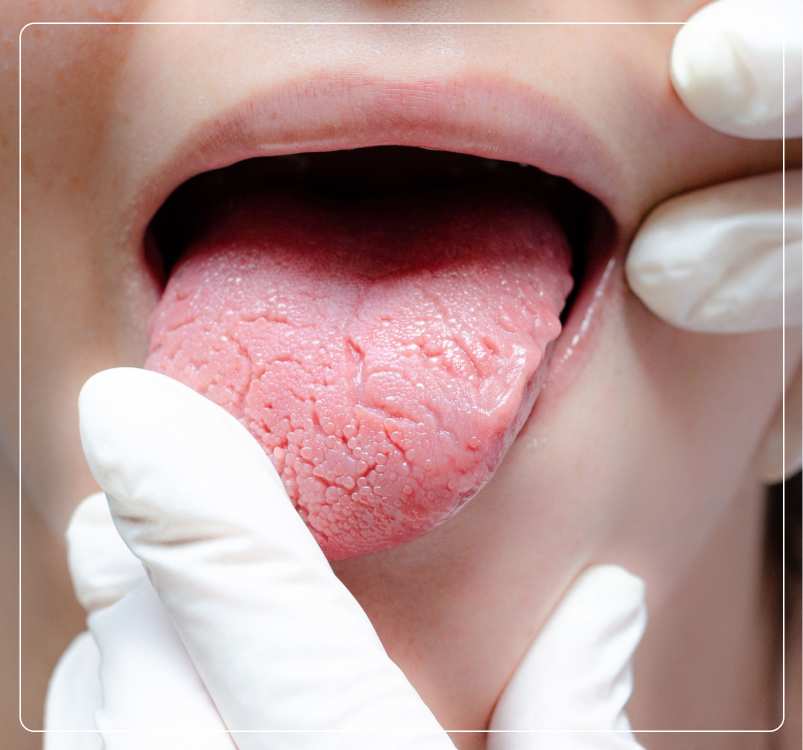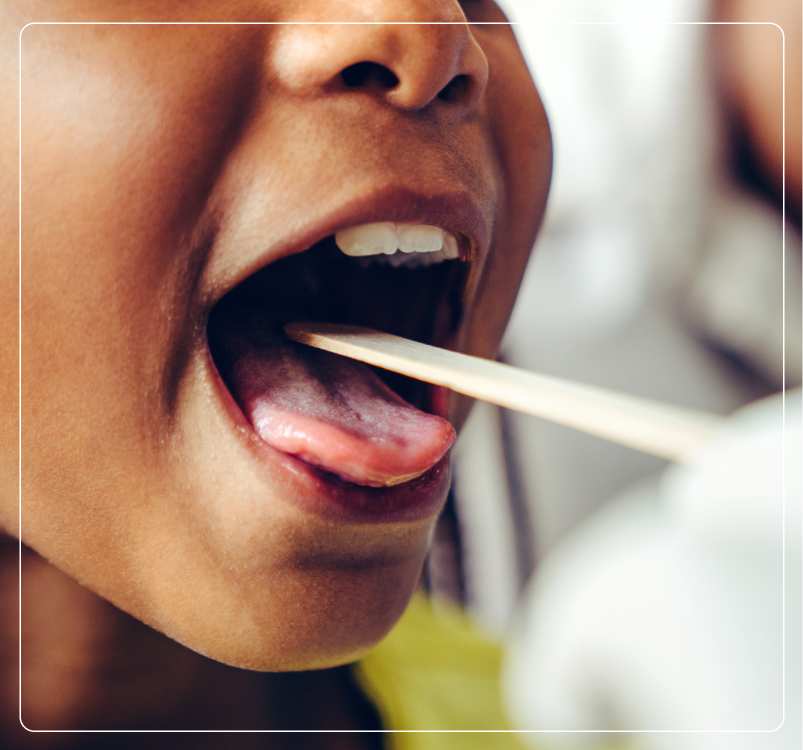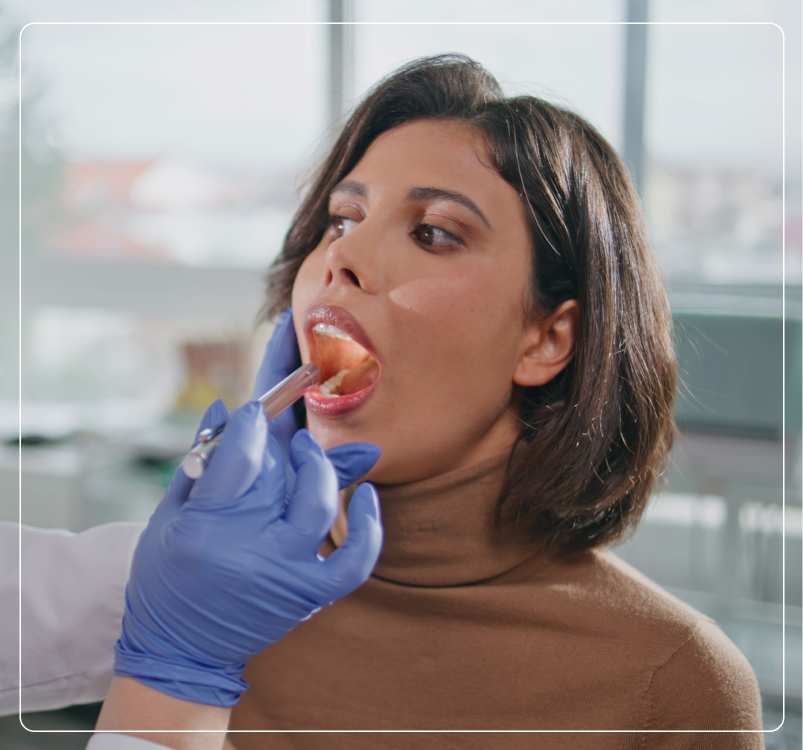Tongue Cancer
Dr. Mukti Mukherjee
[12+ Years Experience]
Radiation Oncologist In Kolkata
Tongue Cancer Doctor in Kolkata
Types of Tongue Cancer
Oral tongue cancer
Affects the visible front part of the tongue.
Affects the visible front part of the tongue.
Occurs at the base of the tongue, near the throat.
Reach out: Your path to quality care starts here
58, Canal Circular Rd, Kadapara, Phool Bagan, Kakurgachi,
Kolkata – 700054
Let’s Talk
Symptoms
Ulcers with red or white patches
Causes

Smoking or tobacco use: A leading cause of tongue cancer from smoking.

Excessive alcohol consumption: Increases the risk when combined with tobacco use.

Human papillomavirus (HPV) infection: A growing cause of base-of-tongue cancers.

Age: Most cases occur in individuals aged 50 and above.

Poor oral hygiene: Chronic irritation from rough teeth, ill-fitting dentures, or habits, such as cheek biting.

Other reasons: Chewing betel, exposure to pollutants (like asbestos, sulfuric acid, and formaldehyde)/radiation/UV rays, Gastroesophageal reflux disease (GERD), poor nutrition.
Evaluation
Stages of Tongue Cancer
- Stage 0
This is the earliest stage when the tumor is small and has not spread to other tissues.
- Stage 1
The tumor is small (less than 2 centimeters) and has not spread to the lymph nodes.
- Stage 2
The tumor is larger than 2 centimeters but still confined to the tongue.
- Stage 3
In tongue cancer 3rd stage, the tumor is larger than 4 centimeters, or the tumor has spread to several lymph nodes in the neck.
- Stage 4
Advanced spread to lymph nodes that affect other organs, such as the lungs, liver, or bones.




